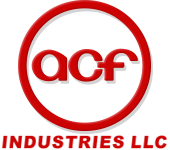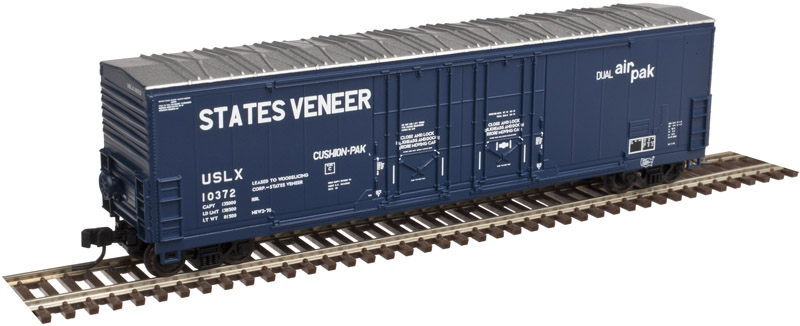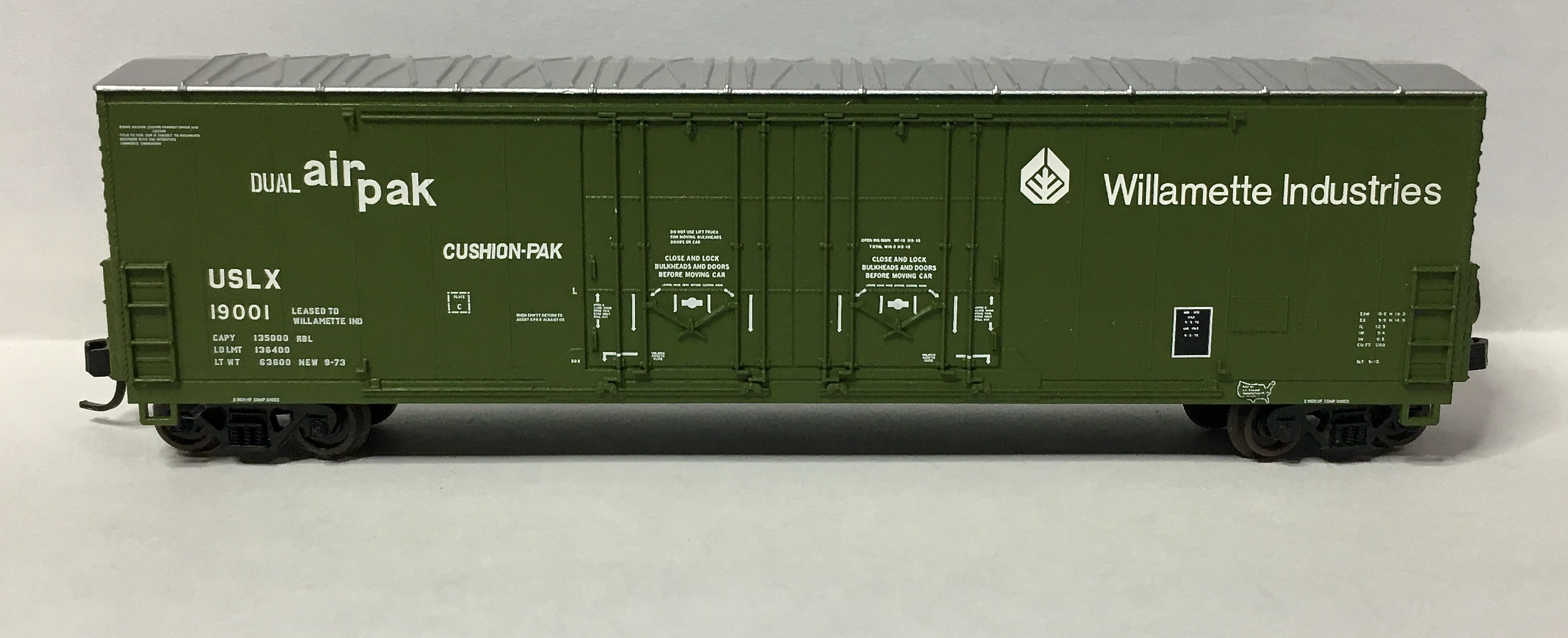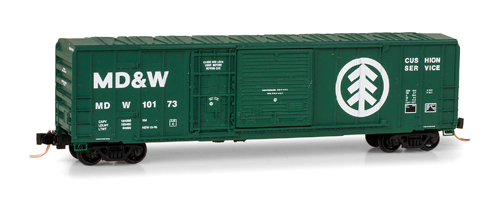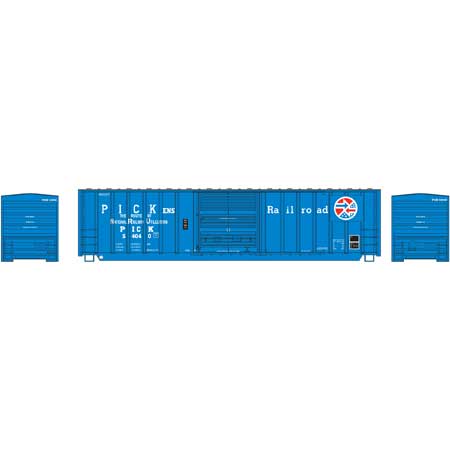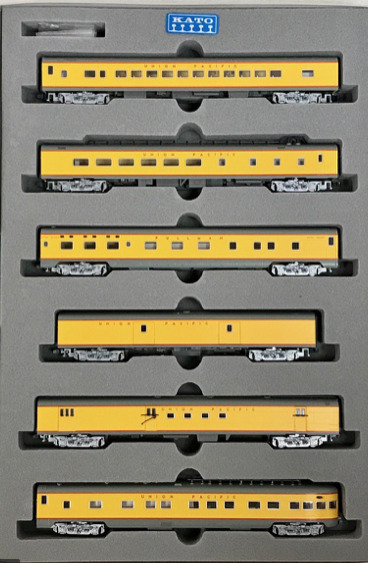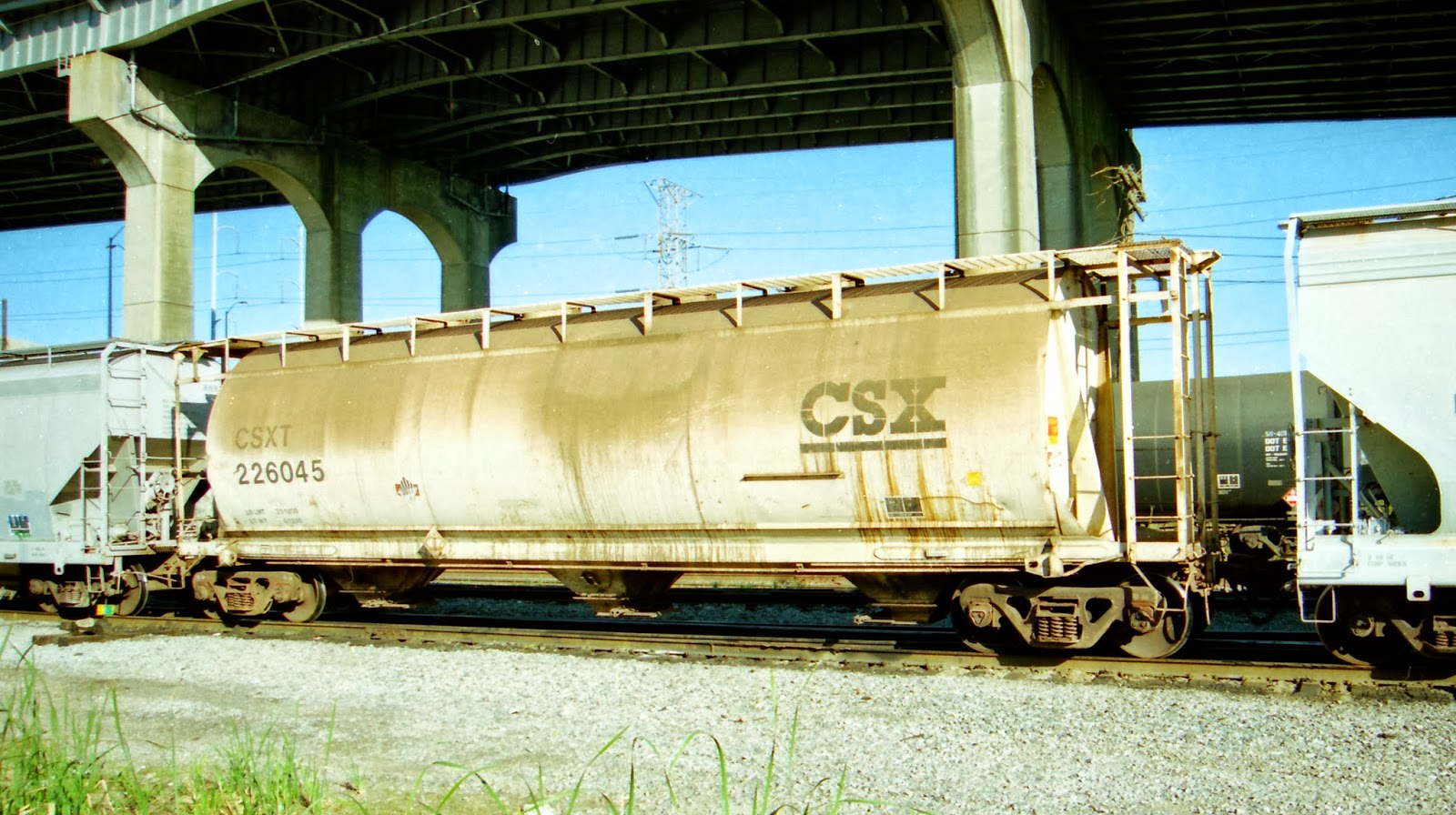Model Information: This model was developed by Delaware Valley Freight Car Corporation. The tooling was purchased by Bowser in 1998 and has been re-released several times since it was acquired. The body style has also been sold by Eastern Seaboard Models under the ESM branding. The model is available in both 3-Bay and 6-Bay variations.
Prototype History: ACF introduced their roundish cylindrical hoppers in the early 1960s. The cars differed greatly from the ribbed sided hoppers of the era. They have been made in 3-bay and 6-bay variations. These cylindrical hoppers were superseded on ACF’s production line by the Centerflow in 1964, a revolutionary design that influenced later covered hopper types. In the late 60s or early 70s Canada came out with 4-bay covered hoppers that appear to be derived from ACF’s pre-Centerflow cylindrical hoppers. These cars were used by CN, CP and various smaller Canadian shippers. There is some question as to why the Canadian builder based their design off the older cylindrical and not ACF’s newer Centerflow. It was likely a patent issue and copying it could have triggered legal action against the Canadian builders. There are also certain structural design differences between the cylindrical and centerflow cars and perhaps the decision to copy the cylindrical was based on the greater volume capacity of the cylindrical design.
Road Name History: 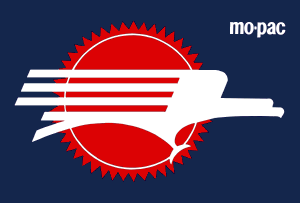 The Missouri Pacific Railroad (reporting mark MP), commonly abbreviated MoPac, with nickname of The Mop, was one of the first railroads in the United States west of the Mississippi River. MoPac was a Class I railroad growing from dozens of predecessors and mergers, including the St. Louis, Iron Mountain and Southern Railway (SLIMS), Texas and Pacific Railway (TP), Chicago and Eastern Illinois Railroad (C&EI), St. Louis, Brownsville and Mexico Railway (SLBM), Kansas, Oklahoma and Gulf Railway (KO&G), Midland Valley Railroad (MV), San Antonio, Uvalde and Gulf Railroad (SAU&G), Gulf Coast Lines (GC), International-Great Northern Railroad (IGN), New Orleans, Texas and Mexico Railway (NOTM), Missouri-Illinois Railroad (MI), as well as the small Central Branch Railway (an early predecessor of MP in Kansas and south central Nebraska), and joint ventures such as the Alton and Southern Railroad (AS).
The Missouri Pacific Railroad (reporting mark MP), commonly abbreviated MoPac, with nickname of The Mop, was one of the first railroads in the United States west of the Mississippi River. MoPac was a Class I railroad growing from dozens of predecessors and mergers, including the St. Louis, Iron Mountain and Southern Railway (SLIMS), Texas and Pacific Railway (TP), Chicago and Eastern Illinois Railroad (C&EI), St. Louis, Brownsville and Mexico Railway (SLBM), Kansas, Oklahoma and Gulf Railway (KO&G), Midland Valley Railroad (MV), San Antonio, Uvalde and Gulf Railroad (SAU&G), Gulf Coast Lines (GC), International-Great Northern Railroad (IGN), New Orleans, Texas and Mexico Railway (NOTM), Missouri-Illinois Railroad (MI), as well as the small Central Branch Railway (an early predecessor of MP in Kansas and south central Nebraska), and joint ventures such as the Alton and Southern Railroad (AS).
In 1967, the railroad operated 9,041 miles of road and 13,318 miles of track, not including DK&S, NO&LC, T&P and its subsidiaries, C&EI and Missouri-Illinois.
On January 8, 1980, the Union Pacific Railroad agreed to buy the Missouri Pacific Railroad. Lawsuits filed by competing railroads delayed approval of the merger until September 13, 1982. After the Supreme Court denied a trial to the Southern Pacific, the merger took effect on December 22, 1982. However, due to outstanding bonds of the Missouri Pacific, the merger with Union Pacific become official only on January 1, 1997.
Read more on Wikipedia.

In 1967, the railroad operated 9,041 miles of road and 13,318 miles of track, not including DK&S, NO&LC, T&P and its subsidiaries, C&EI and Missouri-Illinois.
On January 8, 1980, the Union Pacific Railroad agreed to buy the Missouri Pacific Railroad. Lawsuits filed by competing railroads delayed approval of the merger until September 13, 1982. After the Supreme Court denied a trial to the Southern Pacific, the merger took effect on December 22, 1982. However, due to outstanding bonds of the Missouri Pacific, the merger with Union Pacific become official only on January 1, 1997.
Read more on Wikipedia.
Brand/Importer Information: On May 1, 1961, Bowser was purchased by Lewis and Shirlee English and moved from Redlands, CA to their basement in Muncy, PA. The original Bowser Manufacturing Co first advertised in the model railroad magazines in November 1948. At that time, the company had only one (HO Scale) engine, the Mountain, which had a cast brass boiler that is no longer available. It was sometime later that Bowser (Redlands) developed the NYC K-11 and the UP Challenger. The molds were made by K. Wenzlaff who introduced himself at the MRIA Show in Pasadena, CA in 1985 These two locomotives are still current production.
Bowser entered into N Scale in 1998 with their acquisition of the Delaware Valley Car Company, a manufacturer of N scale freight cars.
Bowser entered into N Scale in 1998 with their acquisition of the Delaware Valley Car Company, a manufacturer of N scale freight cars.
Item created by: Mopjunkie on 2019-01-20 16:32:07. Last edited by CNW400 on 2020-05-25 19:35:52
If you see errors or missing data in this entry, please feel free to log in and edit it. Anyone with a Gmail account can log in instantly.
If you see errors or missing data in this entry, please feel free to log in and edit it. Anyone with a Gmail account can log in instantly.




